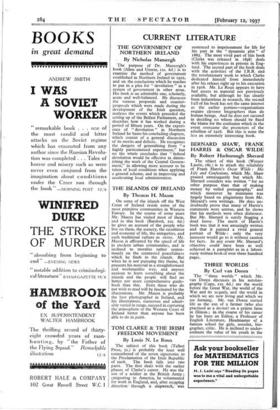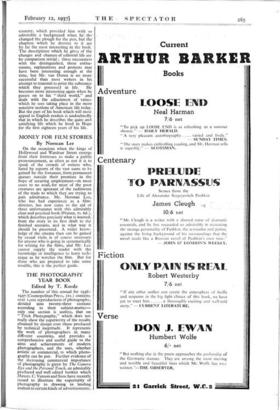The " three worlds " which Mr. van Doren discusses
in his autobio- graphy (Cape, I2S. 6d.) are the world before the Great War, the world of the War and its sequels, and the world in which we are now living and which we are forming. Mr. van Doren started life as the son of a farmer (who also practised as a doctor) on a prairie farm in Illinois ; in the course of his career he has been an Editor, a Professor of English Literature, Headmaster of a famous school for girls, novelist, bio- grapher, critic. He is inclined to under- estimate the value of his youth in the
country, which provided him with so admirable a background when he changed the plough for the Pen; bik chapters which he devotes to it are by far the most interesting in the book. The descriptions which he gives of the changes and chances of editorial life are by comparison trivial ; these encounters with the dittinguished, these enthu- siasms, explanations and protests may have been interesting enough at the time, but Mr. van Doren is no more successful than most writers in his attempt to transmit to. print the substance which they possessed in life. He beComes more interesting again when he paises on to his " third world,"' and deals with the adjustment of values which he sees taking place in the more sensitive sections of American life today. But the part of his book which will most appeal to English readers is undoubtedly that in which he describes the quiet and satisfying life which he lived in Hope for the first eighteen years of his life.















































 Previous page
Previous page